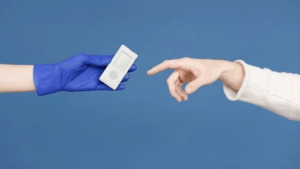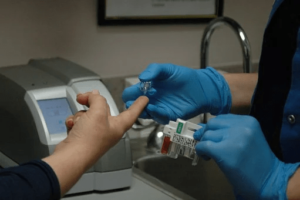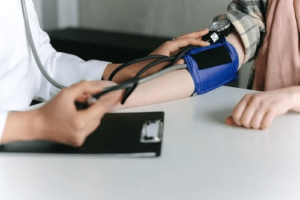Did you know that diabetes can be a disability? It is, in fact, the inability of the body to maintain an adequate level of glucose in the blood is called diabetes. Depending on causative factors, it is classified as type 1 or type 2 diabetes. Different laws have registered diabetic patients, making them eligible for disabled quotas. However, disability is a broader term, covering various factors responsible for a person’s disability. And, of course, diabetes is one of them.
Is Diabetes a Disability?
Diabetes is a disorder when considered as the root cause for various other severe diseases. It affects a person’s performance just like a disabled person. This disability often creates hurdles in adapting to a normal and healthy lifestyle.
For a very long time, major questions arose regarding “Is Diabetes a Disability” in the USA. So, the US Federal law accepted diabetes as a disability and approved the amendments in the disability act. The US government amended the Americans With Disabilities Act in 2008. The notable change was the official declaration that diabetic patients would always be considered disabled. Hence, diabetic patients generally enjoy disability benefits in different places such as schools, institutions, and other workplaces under US Law.
Types of Disability Benefits
If you are a diabetic patient, you must know what benefits you will get under the disability act. It is a critical step before applying for the benefits.
Social Security Disability Insurance
SSDI benefits the diabetic person who has worked for at least 5 years in the last ten years. Social security administration has added diabetes as a disability in the listed manual of impaired. Hence, the diabetic person is eligible for social security disability insurance.
This allowance helps the person officially get back to work after recovery from the severity of the diabetic condition. Plus, if found the person unable to work again, it aids in medical-vocational funding and continuity of ongoing income. This aid also benefits the person in terms of free medical check-ups and medications until recovery.
Supplemental Security Income Program
The Social Security Administration has certain criteria for disability benefits for diabetes. Any diabetic patient with not much income and resources is eligible for the Supplemental Security Income Programme. The service facilitates low-income people with medicare and social security funds.On top of that, this program has initiated a medical health care strategy named Medicaid. This considerate incentive provides the qualified person with every required health-related assistance every month.
The fact to remember is that the Medicaid program is strictly income-restricted. Your income must not exceed the mentioned limit. In the situation otherwise, you’re considered ineligible for the Supplemental Security or Income Programme. However, this policy is flexible for children. The children receiving the SSI are eligible for the Medicaid program. But, if they don’t qualify for the SSI, they can still get Medicaid benefits.
Rights of Diabetic Patients
Since US law has approved diabetes as a disability, diabetic patients have special rights and protections. These privileges are explained below under the comprehensive note of the disability act:
In Workplace:
Federal law ensures the provision of certain rights of diabetic persons at the workplace. Diabetic patients have the advantage of:
- A must provision of the appropriate accommodation.
- Breaks for checking the sugar level of blood.
- Hospitalization if severity prevails or regular medical visit about twice a year.
- Unpaid holidays for up to 12 weeks if a person is an FMLA qualified diabetic patient.
In-School:
Diabetes could be life-threatening if severity occurs. Thus, immediate therapy is necessary. Schools are ordered to provide the following facilities to protect the rights of diabetic students.
- Glucagon and insulin administration by a trained member.
- Monitoring of diabetic patients in field trips and school activities.
- Instructor training for diabetic students about how to deal with emergency diabetic situations by themselves.
In Imprisonment:
The disability benefits law bounds law enforcement to deal with diabetic prisoners with adequate care. This adequate care includes blood sugar monitoring, insulin provision, appropriate care in case of injuries, and referrals to specialists in emergencies.
The law has further instructed the authorities as:
- Try to keep the prisoners safe and healthy during their investigation or their stay in prison.
- Provide every necessary medical attention a diabetic person needs.
- Prisons must be equipped with the appropriate first aid and staff to deal with any diabetic emergency.
In Public Spots:
Diabetic patients have the right to extra protection even in public spots. People with diabetes are generally allowed for certain acts, which may be illegal for ordinary healthy people. They have the right to:
- Carry the insulin syringes through checkpoints.
- Carry the medication, check the blood sugar at a public spot, and use the toilet whenever required.
- Recreational programs are to assist diabetic children in camps.
There is no need to tell the employer about diabetes unless the job requirement states any medical condition or medical check-up. But one must inform about the disease if the workplace offers benefits for the disabled, as mentioned by the law.
How to Apply for Disability Benefits for Diabetes?
Eligibility Criteria
Not every diabetic is eligible for disability benefits. There is a certain eligibility bar that any person with diabetes should meet before applying for disability benefits. This eligibility depends on the severity of the disease and how it is causing complications. Typically, if there is uncontrolled diabetes, then you should apply for disability benefits. Plus. You need to check your health score before applying for these benefits. Following are the health conditions that qualify a person for beneficiary services:
- The presence of the increased amount of acid in the body is called Acidosis.
- When diabetes complicates eye function, causing Retinopathy.
- Nerve endings in the body got damaged, leading to Neuropathy.
- Nephropathy, thus compromising the normal renal function.
- Inappropriate gastric movements.
- Diabetic patients under 18 if they have no work or low income, and suffering from one year.
- Children less than six months of age who require daily insulin are qualified for disability benefits.
5 Steps Application Process
Once you discover that your diabetes is a disability, the next question is how to apply? Fiver significant steps involved in applying for the disability benefits are as follows:
Step 1: Contact the Disability Determination Services or Local Administration Office of Social Security.
Step 2: Provide your disease data to the DDS after consulting the health care team. Provided disease data is critical for decision making, so it is an essential step of the application.
Step 3: DDS verifies medical reports provided by consulting the specialist who diagnoses the complication. After this, you have to fill and submit the specific paperwork. Wait for 3-5 months for approval or denial of the decision.
Step 4: If denied in the final decision, you can file an appeal. It requires only the resubmission of the paperwork for reconsideration.
Step 5: There is an option for the second appeal if the first appeal too got rejected. The administrative law judge attends this appeal. However, the decision for the second appeal may take two years.
FAQs
1- Can people with type 2 diabetes claim disability?
There is no specification for the type of diabetes in claiming the disability. Determining factor is the complication and severity.
2- What jobs can people with diabetes not do?
Certain jobs are restricted for diabetic patients due to their insulin usage. Generally, they can’t drive a bus or truck on a long route, fly an airplane, etc.
3- Do I need to tell my employer I have diabetes?
There is no need to tell the employer about diabetes unless the job requirement states any medical condition or medical check-up. But one must inform about the disease if the workplace offers benefits for the disabled, as mentioned by the law.
4- Can I be fired for being diabetic?
No, workplaces are bound under US law to provide relief and benefits to people with diabetes under the disability act instead of firing.
Bottom Line
By claiming diabetes is a disability, the US government has ensured you have satisfactory care in every department. This initiative eases the daily life of a person falling into the criteria. There are certain benefits and protections that a diabetic patient can claim under the US government’s order.
Such patients benefit from special social security programs in the form of medical aid and income. They enjoy specific rights and continual employment with notable exceptions for them as disabled people. Moreover, diabetes disabled persons have strict protection of rights at public places, imprisonment, schools, etc. However, applying for a benefit is a complicated process, but you should not give up hope.





